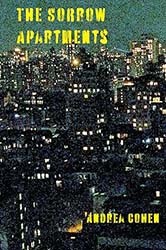Shiva: Poems of October 7 is a poetry anthology by Israeli poets documenting the pain and suffering in the months after October 7, 2023. In the Introduction, the editors write, “The poems collected in this anthology come from a broad Israeli ideological spectrum and were collected during the first six months following October 7th, or, in the Jewish calendar, from Simchat Torah to Pesach.” Each poem is included in its original Hebrew alongside an English translation.
Divided into seven sections – “Terror,” “That Shabbat and Other Appointed Times,” “Hostages,” “Language,” “Loss,” “The Other Side,” and “The Future” – these poems span a wide range of emotions and experiences that are unified in their collective grief. The poem “Strong as Death” by Shlomit Naim Naor opens with the lines, “There’s no point in sleep, images surface / There’s no point in waking, the visions are real.” This feeling of a continuous nightmare resurfaces in many poems as other poets cry out in anger at G‑d for His absence. Other poems focus on the ritual of Shabbat and how difficult it is to celebrate joyous holidays when there is no joy in the middle of war (how do we celebrate our freedom on Passover when our people are being held captive?). Osnat Eldar’s poem “In a Single Utterance” plays with the biblical wording of “Keep Shabbat” and “Remember Shabbat” by writing, “Keep your daughters close” and “…remember that Shabbat / the anxiety that drove a wedge into your sleep.”
Many poems in this anthology are in conversation with biblical texts, prayers, and Jewish rituals as a way to weave the tragedy of October 7 with a history of Jewish suffering. Elchanan Nir’s poem “To Run Away” invokes frustration with G‑d by referencing the desecration of the Temple at the time of the Maccabees: “They’ve breached everything – the fences, the wall, the towers, / They desecrated the oil. Tell us, when are You coming, / Quickly, be stronger, everything is going up in smoke.” Comparisons are drawn between a sense of helplessness from the intensity of the situation but also extreme difficulty in finding language to write about this trauma. Poet Eva Murciano expresses the difficulty of writing poetry after October 7 in her poem “After That Terrible Day”: “The words fell face down on the ground / In a haphazard pile of crying and fear.”
One of the most powerful poems in this collection is “One Tiny Seed” by Rachel Goldberg-Polin, which she originally recited at the end of her speech to the United Nations in Geneva in December 2023. Her poem envisions another crying woman in Gaza who is just like her, and asks, “Can we take [our tears], gather them up, and remove the salt, / And then pour them over our desert of despair… / And plant one tiny seed / A seed wrapped in fear, trauma, pain and hope? / And see what grows…” These hopeful, empathic words coming from Rachel Goldberg-Polin alongside dozens of poems of grief, despair, and longing express the devastation of this period of darkness.
Jamie Wendt is the author of the poetry collection Laughing in Yiddish (Broadstone Books, 2025), which was a finalist for the 2022 Philip Levine Prize in Poetry. Her first book, Fruit of the Earth (Main Street Rag, 2018), won the 2019 National Federation of Press Women Book Award in Poetry. Her poems and essays have been published in various literary journals and anthologies, including Feminine Rising, Catamaran, Lilith, Jet Fuel Review, the Forward, Minyan Magazine, and others. She contributes book reviews to the Jewish Book Council. She won third prize in the 2024 Reuben Rose Poetry Competition and won second prize for the 2024 Holloway Free Verse Award through the Illinois State Poetry Society. Wendt holds an MFA in Creative Writing from the University of Nebraska Omaha. She lives in Chicago with her husband and two kids. Follow her online at https://jamie-wendt.com/ or on Instagram @jamiewendtpoet.





